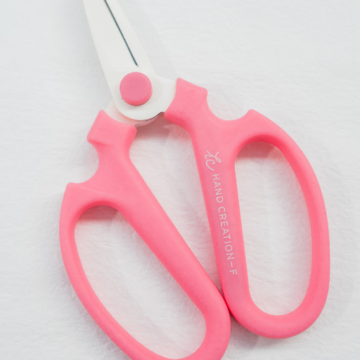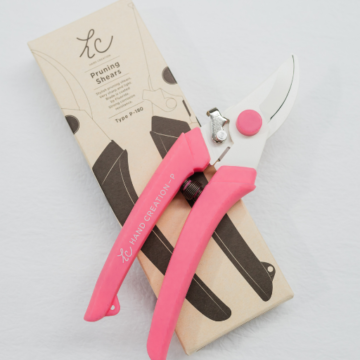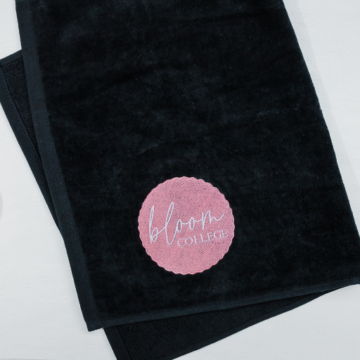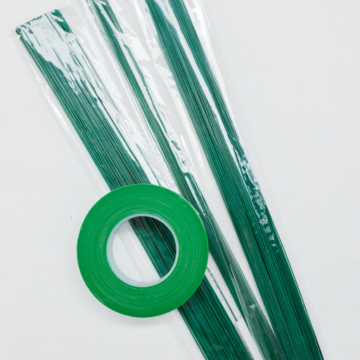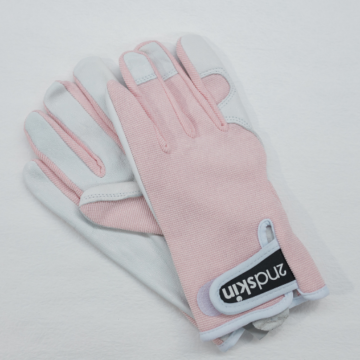A great florist needs equally great tools. That’s why we’ve redesigned our Bloom College tool kits – to ensure you can begin your floristry journey with ease. These floristry tool kits have been designed to help beginners and professionals alike, and are the result of decades of first-hand experience and research by Bloom College’s founder, Yvette Timmins.
Whether you consider yourself an aspiring florist, a seasoned professional, or just a flower lover, this blog is for you. So, let’s dive in and discover Bloom College’s brand-new floristry tool kits.
The Bare Essentials Kit
Treat yourself or a flower-loving friend to the best flower-cutting snips and secateurs ever made. We have bundled these Sakagen tools from Japan with the softest and lightest gloves to wear whilst you remove pesky thorns and leaves from the flower and foliage stems, saving your hands in the process! This tool kit contains the bare essentials you’ll need for creating your first arrangement, and where better to start than with the tools that real florists use day-to-day?
What’s inside:
1 x Sakagen flower cutting snips
1 x Sakagen secateurs
1 x pair of gloves
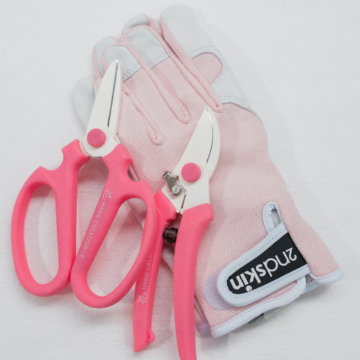
The New Basics Kit
For the budding florist or to complement your new hobby, our Basics Kit has everything you need to start creating beautiful arrangements. Complete with ultra-high quality Japanese Sakagen snips and secateurs, a comfortable pair of gloves and a few Bloom College essentials, this is the floristry tool kit for those at the very start of their floristry journey.
What’s inside:
1 x Sakagen flower cutting snips
1 x Sakagen secateurs
1 x pair of gloves
1 x Bloom College embroidered apron with pockets
1 x Bloom College logo towel
1 x Bloom College bag
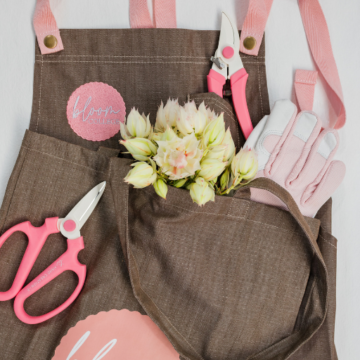
The Upgraded Essentials Kit
This floristry tool kit is for seasoned florists or those looking to take their floristry to the next level. You get brand-new secateurs and snips from Sakagen, a light and breathable pair of gloves, a few Bloom College essentials and floristry accessories including grosgrain and ribbons for use on your arrangements. While we do recommend that beginners start with one of our simpler tool kits, if you’re excited to jump right into the deep end with floristry, this tool kit will suit your needs just as well. If you are a more experienced florist, you know the importance of high-quality tools, so if you’ve had your snips for years, this kit is a great way to replace or replenish your current kit.
What’s inside:
1 x Sakagen flower cutting snips
1 x Sakagen secateurs
1 x pair of gloves
1 x Bloom College embroidered apron with pockets
1 x Bloom College logo towel
1 x Bloom College bag + PLUS assorted florist grosgrain and satin ribbons
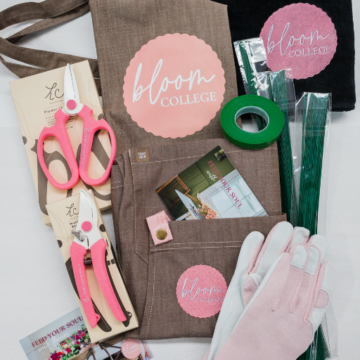
Unsure which kit is right for you? We’re more than happy to provide our expert opinion. Simply contact our team with your query and we’ll get back to you as soon as we can.


